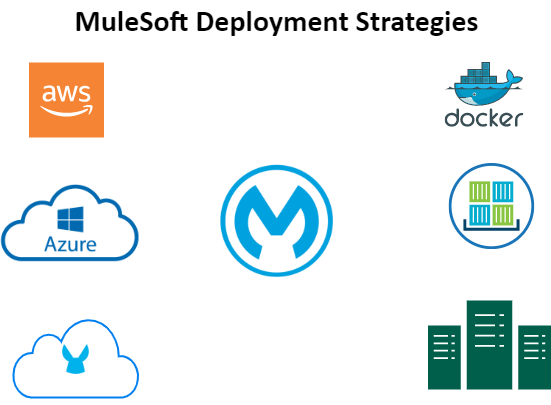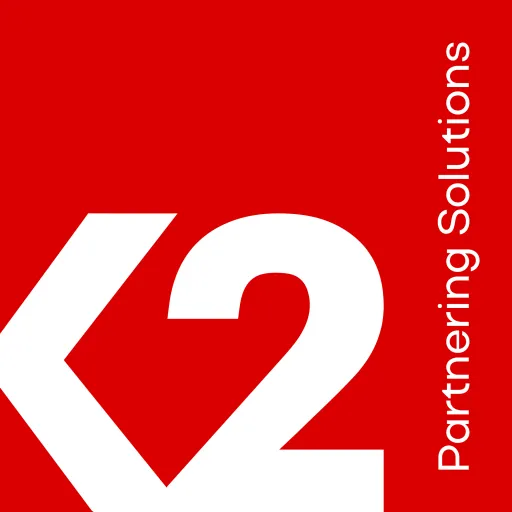Contact us
Global Headquarters,
645 Hulet Drive,
Bloomfield Hills,
Michigan 48302
Phone: (248) 869-0080
Global Headquarters, 645 Hulet Drive, Bloomfield Hills, Michigan 48302
Phone: (248) 869-0080
MuleSoft Deployment Strategies (RTF vs Hybrid vs CloudHub)
CloudHub, Hybrid and RTF are available as deployment options when using Anypoint’s Runtime Manager. Let’s look at difference between these deployment options and use cases suited for each deployment model.
Mule applications are primarily deployed and managed using Runtime Manager. Runtime Manager is available both on Cloud based Anypoint Platform and Private Cloud Edition. Runtime Manager primarily supports 4 deployment options and each option is available based on which Runtime Manager is being used.

Deployment options
CloudHub
Fully-managed & highly available service provided by MuleSoft to run mule applications in the cloud without having to provision / manage any servers or cloud resources. CloudHub is available globally in multiple regions. CloudHub also provides secure and out of the box compliance environment in the cloud.
CloudHub also comes with Auto / Manual scaling without redeployment, inbuilt integration with Anypoint Studio IDE to quickly deploy apps, API to manage and monitor applications.
Best suited for Experience APIs, Process APIs or Cloud to Cloud Integrations and Securely exposing APIs for Enterprise Systems hosted on premise.
Hybrid (Mule Servers On Premise)
Run mule applications on your own Mule Servers by deploying and managing through Runtime Manager. Mule Applications could be run on servers hosted on premise / data center or in Cloud. Each Server has to be registered with Runtime Manager and then organized into Server Group or Clusters for high availability. Deployment and Management of Mule Apps onto Hybrid Servers are performed through Runtime Manager. Additionally Runtime Manager also provides Monitoring of all deployed applications.
Best suited for System APIs integrating with enterprise systems hosted on premise, Process APIs that communicate with Multiple Systems APIs for reduced latency and / or compliance, Experience APIs for Inter-Network Apps and Batch Processing Apps processing large volumes of data on premise.
Note: Although Clustering Mule Runtime engines provide high availability it is still dependent on nodes availability and # of instances of mule apps running are dependent on # of clusters / servers. Auto-recovery of node is not available. Each runtime is limited to a specific version and any upgrades would require downtime.
Anypoint Runtime Fabric (RTF)
Runtime Fabric (RTF) is a container based service that provides iPaaS based environment for all customer managed infrastructure whether it be Bare metal Servers / VMs or AWS or Azure. RTF comes with all components required for running Mule Services on a container based environment such as Docker and Kubernetes.
RTF offers abilities such as running multiple versions of Mule Runtimes on same servers, ability to isolate applications by running one Mule Runtime per application, Auto fail-over and CPU burst make RTF a very promising deployment model. RTF makes it easier to switch between mule versions thus giving an ability to do a phase based 3.x to 4.x migration on the same set of resources without changing the plumbing in place.
Best Suited for Systems APIs, Process APIs, Experience APIs for Inter-Network Apps and ideal all scenarios due to its Cloud like abilities.
Anypoint Platform Private Cloud Edition (PCE)
Private Cloud Edition (PCE) bundles the management modules known as control plane into the environment so all components to run and manage apps are on customer managed infrastructure.
While PCE bundles both Control and Runtime planes, it requires lot of infrastructure and is only effective to be opted out of forced regulatory requirements. Features of PCE might vary from other deployment models as release cycles are often behind. Setting up PCE is also complex when compared to RTF.
CloudHub vs Hybrid vs RTF: Differences
When choosing a deployment model for on premise / data center installation, even though Hybrid might require less hardware RTF provides cloud like ability and flexibility in terms of how applications and resources could be managed effectively.
The differences listed above are more on hosting and management. Each of these deployment models could have some variations in terms of functional features.
Anypoint Platform Private Cloud Edition (PCE)
Private Cloud Edition (PCE) bundles the management modules known as control plane into the environment so all components to run and manage apps are on customer managed infrastructure.
While PCE bundles both Control and Runtime planes, it requires lot of infrastructure and is only effective to be opted out of forced regulatory requirements. Features of PCE might vary from other deployment models as release cycles are often behind. Setting up PCE is also complex when compared to RTF.
CONCLUSION
When choosing a deployment model for on premise / data center installation, even though Hybrid might require less hardware RTF provides cloud like ability and flexibility in terms of how applications and resources could be managed effectively.
The differences listed above are more on hosting and management. Each of these deployment models could have some variations in terms of functional features.
More Posts
Global Headquarters,
645 Hulet Drive,
Bloomfield Hills,
Michigan 48302
Phone: (248) 869-0080
Global Headquarters, 645 Hulet Drive, Bloomfield Hills, Michigan 48302
Phone: (248) 869-0080
Copyright © 2024 Openlogix Corp. | All rights reserved

